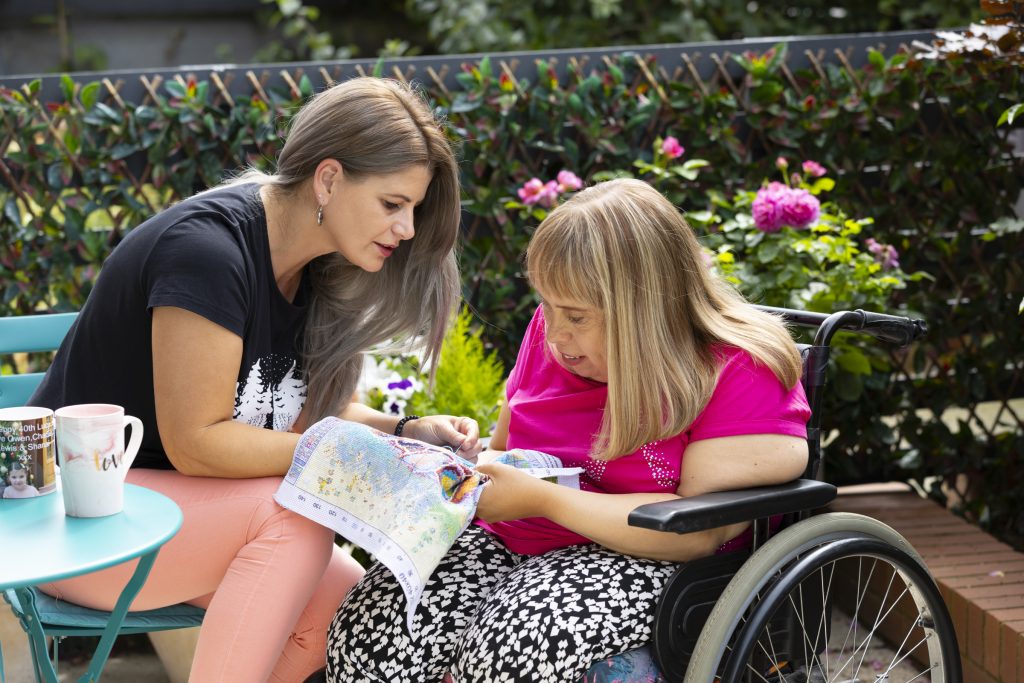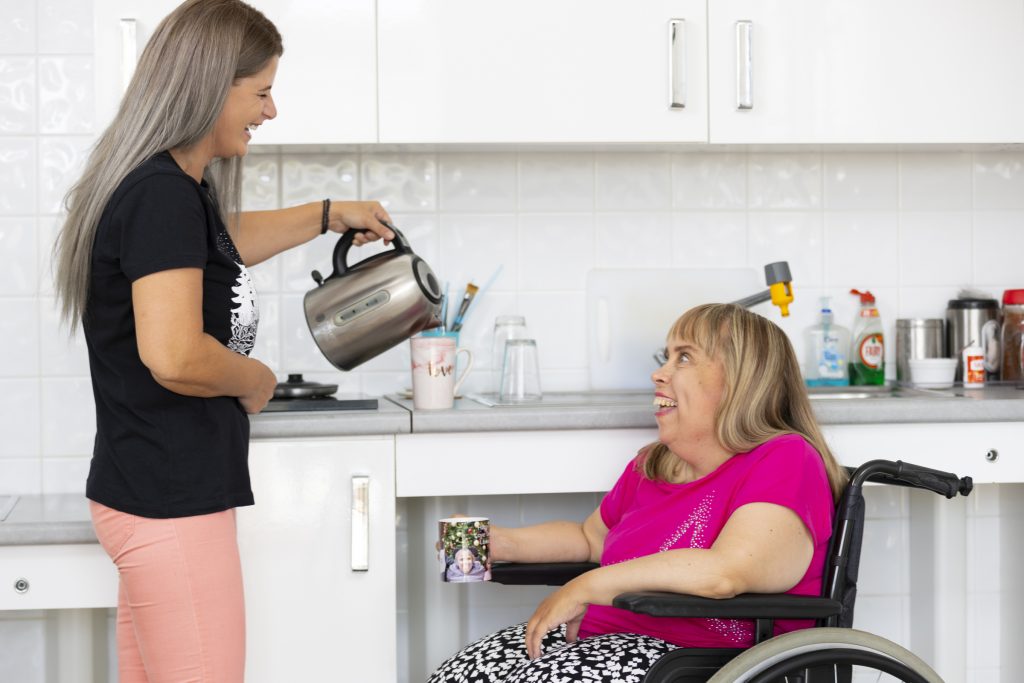Caring for elderly parents can be rewarding, but it’s rarely easy—especially when their behaviour changes.
Dementia, memory loss, and confusion can lead to challenging moments. Your parent may get agitated, anxious, or even argumentative. They might seem like a different person from the parent you’ve always known. When that happens, how do you help? How can you connect with them in a way that brings peace to everyone involved?

In this guide, we’re sharing tips and tricks we’ve found helpful over our 36 years of caring for individuals with challenging behaviours across a full range of services, including live-in care, home care, supported living and care and nursing homes.
One answer is surprisingly simple: music.
Music has the power to reach people when words fail. A familiar song can soothe, calm, and even bring back joyful memories. Art, too, can work wonders. Whether it’s a small craft project or a simple drawing, creative activities let elderly parents focus, express themselves, and shift into a calmer state of mind. When things get tough, music and art can provide rescue, bringing moments of peace and connection.
Sara, a field training manager at Agincare has seen this firsthand:
“When I visit clients, I can see the impact of music—it helps either to calm down or energise people. Music also helps people to remember important times in their lives.”
This approach isn’t just about helping them though; it’s about helping you too. When caring for someone with behaviour challenges, a few moments of calm and connection can feel like a lifeline. Music and art can give you both something positive to focus on and share, creating pockets of joy in the midst of challenges.
Why Music and Art Matter
Music goes deeper than just sounding good. It taps into parts of the brain linked to memory, emotion, and recognition. This is why, even if your parent seems unreachable, a favourite tune can open up new pathways. Music has a way of lifting spirits, calming agitated feelings, and helping us remember who we are.
Art, meanwhile, offers its own kind of magic. Working on a small art project or just colouring can focus and relax someone. Creating something with their own hands—no matter how simple—can bring them pride and give them a positive outlet for their energy and emotions.
Simple Ways to Use Music and Art with Your Parent
If you’d like to try using music and art with your elderly parent, here are some ways to start. They’re easy to set up, and you can adjust each activity to match your parent’s interests and energy levels.
1. Create a Playlist of Their Favourite Songs
Nothing fancy here—just a playlist with songs that mean something to them. Ask them about their favourites, or try playing music that was popular when they were young. Play these songs when they’re feeling down, agitated, or just in need of a boost. For elderly parents with behavioural problems, a familiar song can bring back memories, lift their mood, and create a sense of shared joy.
Even better, sing along if they’re up for it! Clap to the beat, or encourage a little dance. These moments, no matter how small, can mean the world.
2. Have Mini ‘Music Therapy’ Sessions
There’s no need to be formal—just sit with them and listen. Let them take in the music. See if they respond to the rhythm or tune. They might sway, tap their fingers, or close their eyes to enjoy it. Music can provide them with gentle exercise, brighten their mood, and bring a smile.
3. Set Up a Simple Art Activity
You don’t need anything elaborate. Start with a colouring book or a few simple art supplies. Try drawing, painting, or crafting together. The goal isn’t to create a masterpiece; it’s simply to spend time together, focusing on something creative. For someone dealing with memory loss or dementia, art can be calming and give them a sense of pride.
If you notice they enjoy it and it reduces behavioural problems in your elderly parents, make it a regular part of their routine. You might find that they look forward to this time, especially if they tend to get restless or anxious at certain points in the day. Having a daily “creative time” can help everyone relax and connect.
4. Use Photos and Music to Spark Conversation
A song or a photo can act as a key, unlocking memories and emotions that seem hidden. For those experiencing cognitive decline, reminiscing isn’t just comforting; it can actually help slow memory loss. Revisiting memories through music or photos stimulates neural pathways, promoting mental engagement and a sense of self.
Music, in particular, can bring back vivid memories and emotions, while photos provide visual cues that help bring the past into the present. Even if specific details are unclear, these moments of reminiscence promote connection, reduce isolation, and bring warmth, comfort, and identity into each day.

The Benefits for You as a Carer
Taking care of an elderly parent with challenging behaviours can be exhausting. That’s just the reality of it. No matter how much love you have, it can feel draining to always be on the lookout, trying to figure out how best to help them. Music and art can be a relief to you, too. These moments of connection and calm are just as valuable to you as they are to your parent.
And remember: you don’t have to do it all alone.
Agincare’s Live-in Care services provide compassionate, round-the-clock support tailored to your family’s unique needs. Our experienced and dedicated live-in carers support individuals facing a range of challenges, creating a positive and reassuring environment. They’re also there to help maintain meaningful daily routines, whether through music, art, or any activity that brings comfort and joy.
Live-in care offers a personalised alternative to care homes, with one-to-one support from a carer selected to suit your preferences.
For a detailed quote, we offer a free, no-obligation care assessment. Contact our team to find out more about your options.
